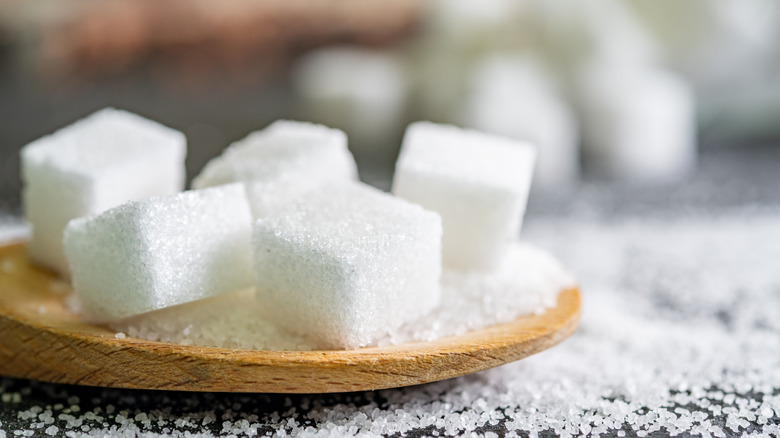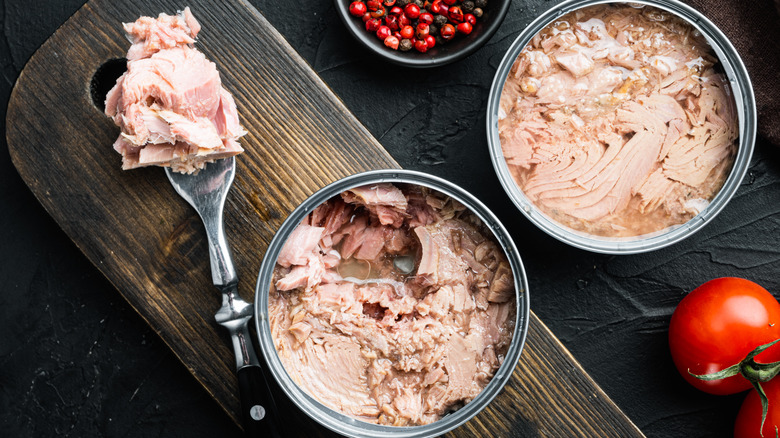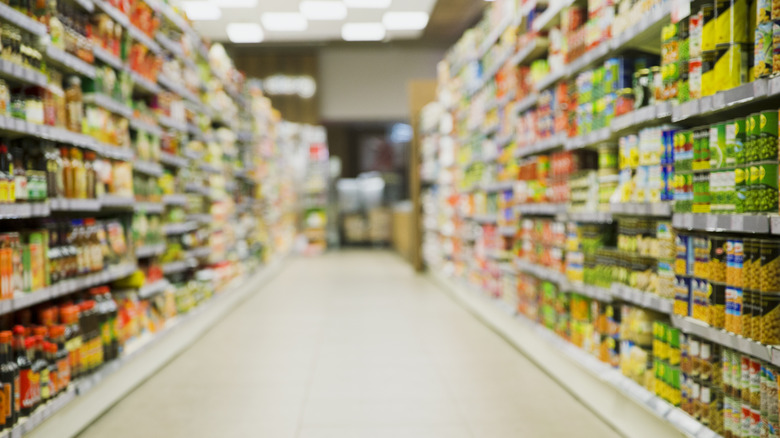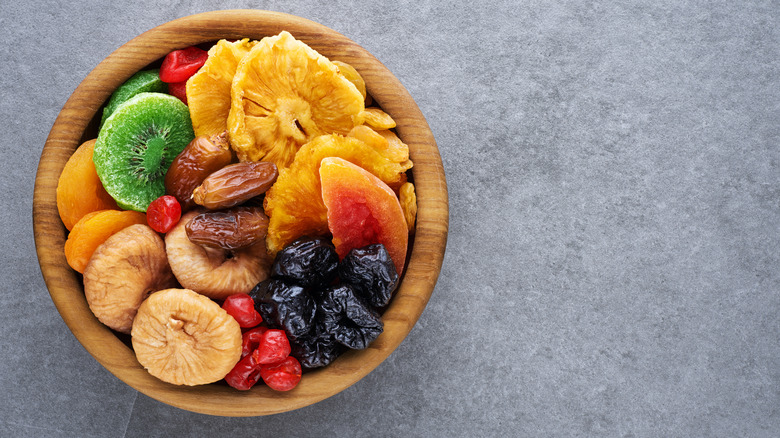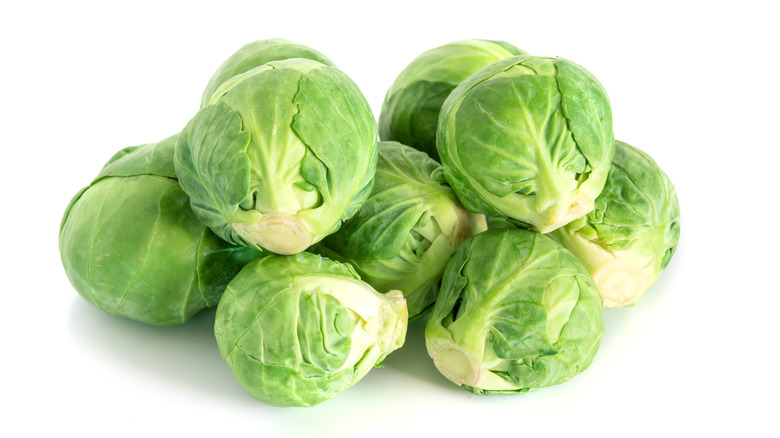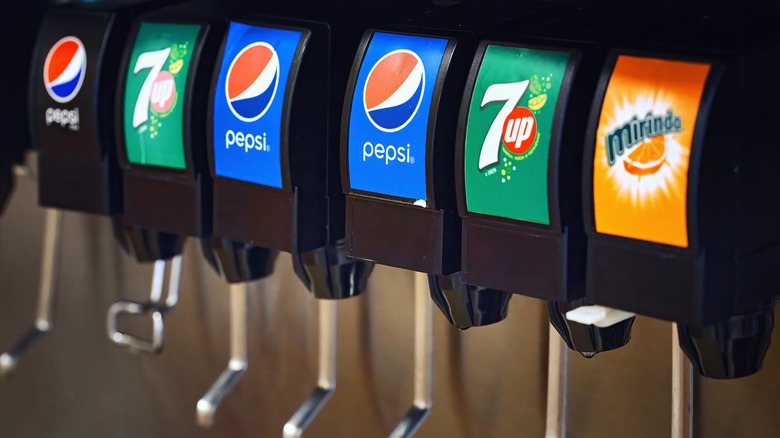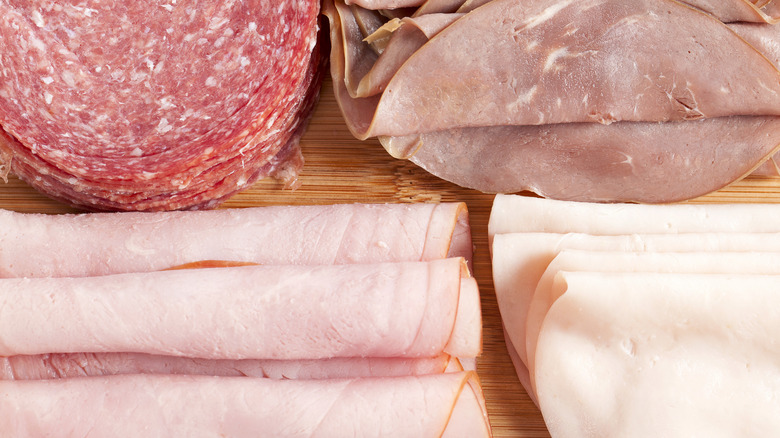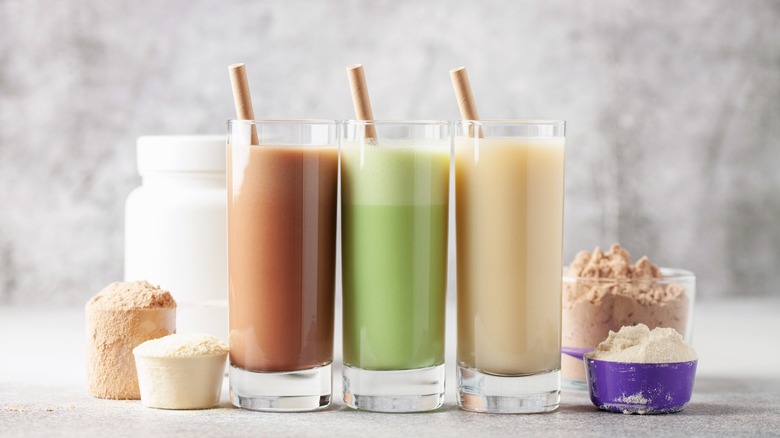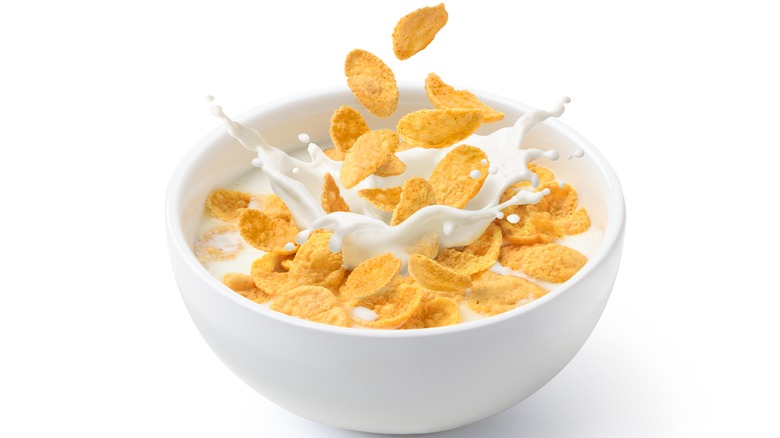12 Foods You Should Really Avoid Eating Every Day
A balanced diet can be difficult to achieve, especially in our busy lives when sometimes convenience trumps all other factors when deciding what we are going to eat for breakfast, lunch, and dinner. We know that there are certain foods we should not be eating too much of, but you may be surprised to hear about what foods you may be eating on a daily or near-daily basis that you should pump the brakes on.
There are absolutely foods that you should try to incorporate into your daily routine, including specific kinds of healthy fats and grains. That might mean seeking out healthy foods you have not tried before, or learning about new ways of preparing your favorite dish. After all, we can only eat a salad so many times in a week before we are absolutely bored to death by it. When assessing what kinds of foods you eat on a day-to-day basis, however, there are some categories to be on the lookout for that you may want to cut back on — including foods that are generally considered healthy.
1. Added or processed sugar
Sugar is found naturally in many foods, including fruits and dairy products according to the American Heart Association. Where people may get into trouble, however, is the over-consumption of foods with added or processed sugar. There is a slew of health risks associated with consuming too much sugar, including diabetes and weight gain, but also an increased likelihood of developing dementia and certain types of cancers (via Harvard Health Publishing). Enjoying the occasional sweet treat is perfectly fine, and the American Heart Association notes that small amounts are not harmful to your health. However, it is to your benefit to be mindful of just how much added sugar you consume on a regular basis.
The tricky thing with added sugar is that it tends to hide behind a lot of names when you read through a food's list of ingredients. According to Harvard Health, keep your eyes peeled for words that end in "-ose," as that likely means it is an added sweetener (words like fructose and dextrose). Added sugars have appeared in more foods over the years, to the point now where it is hard to avoid them when buying processed foods. According to Healthline, even foods you may not think are high in added sugar can be harmful, like low-fat yogurt, condiments such as ketchup and pasta sauce, and items sold in cans like soups, beans, and even vegetables.
2. Tuna
Seafood can be an important part of a balanced diet, as fish contains a ton of nutrients like omega-3 fatty acids and vitamins (via Washington State Department of Health). Different kinds of fish also contain methylmercury or mercury as it is more commonly referred to. According to the Victoria State Government Department of Health in Australia, mercury tends to be higher in oceanic fish like swordfish, but a more common grocery item where mercury content is higher is tuna. While tuna is safe to consume in small doses, eating it on a near-daily basis can increase the risk of mercury exposure, which can cause brain cell death (via Healthline).
However, you would have to eat a whole lot of tuna before mercury exposure became a huge concern. According to Vice, mercury toxicity is quite rare, and you would have to eat several cans of tuna per day for several months before any potential problems may arise. Going forward, it is probably a good idea to carefully read your tuna can label to see what kind of tuna you are consuming, as different species contain varying amounts of mercury (with skipjack being among the lowest). Mercury aside, canned tuna may also contain higher levels of sodium, another reason to avoid eating it daily.
3. Canned food
The canned food aisle at the grocery store is filled with simple, quick solutions to your weekly meal planning. Not only are canned foods super affordable, but they have a long shelf life, meaning you can stock up on these low-cost items and have food at your disposal for months. What you want to avoid, however, is making canned foods a part of your daily routine.
There are a couple of reasons why you want to avoid eating canned foods every day. For starters, canned foods are usually loaded with sodium as a means of preserving the food (hence the long shelf life). According to Foodline, canned foods may also contain trace amounts of preservatives such as Bisphenol A, or BPA. Canned foods also carry the rare but present risk of containing Clostridium botulinum, a dangerous bacteria (via Healthline). The major reason why you want to keep canned food consumption at a minimum, however, is due to added ingredients like sodium and sugar. While canned foods can contain just as many nutrients as their fresh counterparts, you are still throwing in unnecessary added ingredients that, if eaten regularly over time, can lead to health complications like high blood pressure.
4. Animal protein
Protein is a crucial nutrient that humans need to consume in order to maintain a healthy lifestyle. Luckily, protein is readily available in most of the foods we eat, from fruits and vegetables to meat and animal by-products (via Harvard Health Publishing). In fact, according to BBC Future, humans on the whole consume far more protein on a regular basis than our body actually needs, so it is a nutrient that you probably do not need to worry about finding more of in your diet.
While high-protein diets have risen in popularity over the years, there is the concern that eating too much protein in your day-to-day life can have adverse health risks. According to Healthline, eating too much of a specific kind of animal protein such as red meat can be linked to an increased risk of heart disease. Animal protein may also increase your risk for colon cancer as well as kidney stones. And, since we know from the BBC that we consume more protein than we need, it probably would not hurt to cut back on animal protein and opt for a meatless Monday or more plant-based dinners in your weekly meal planning instead.
5. Salt
Salt is a naturally occurring mineral found in the sea as well as the land, and it finds its way into almost every kind of food that we eat on a regular basis. While it can do wonders as a tool for seasoning your favorite dish, an increased intake of sodium can also be detrimental to your health in the long term. Smaller-scale annoyances from eating too much salt like feeling bloated or dehydrated can grow into life-threatening issues related to high blood pressure and even kidney health.
According to the Centers for Disease Control and Prevention (CDC), nearly half of the amount of salt we consume in a given day comes from only ten food sources, either as a flavor additive or as a preservative to maintain freshness on store shelves. The only problem is, a number of those foods are very common grocery store items that we tend to gravitate to on a daily basis, such as bread, cheese, soup, deli meat, and eggs. Healthline provides a list of foods to eat instead to avoid consuming too much salt on a daily basis, which in the long run will help you maintain a healthy lifestyle.
6. Dried fruit
It is recommended that we eat fruits, which are loaded with vitamins and other nutrients, on a daily basis (via Healthline). But to avoid outweighing the benefits of fruit with any potential drawbacks, it is recommended that fruit is eaten in its fresh, natural state as much as possible. That often means avoiding fruit juices, which usually contain added sugar.
It is also advised that you avoid eating dried fruit daily. While Healthline points out that dried fruit still contains the nutrients found in fresh fruit, making it a healthier snack than alternatives like chips and cookies, there may also be disadvantages to the snack. Mainly, according to SFGate, you may experience gastrointestinal problems due to the fact that dried fruit is higher in fiber. In addition, eating dried fruit may cause you to consume more calories than intended, since the lack of water found in dry fruit makes them a less dense snack, causing you to potentially eat more than you initially meant to. If you are going to eat dried fruit, opt for the kind that does not come coated with added sugar, which could completely negate any potential nutritional benefit from the dried fruit in the first place.
7. Cruciferous vegetables
We may have grown up hating vegetables, but as it turns out our parents were right to try to get us to eat more of our greens. Vegetables are a very important, nutritious food group that should make up a large portion of our daily diet. However, just like any other food group, it is important that we consume a variety of different kinds of vegetables, as there may be too much of a good thing when it comes to the cruciferous variety.
Cruciferous is a fancy-sounding term used to describe a particular group of vegetables that includes Brussels sprouts, broccoli, kale, cauliflower, and turnips (via Healthline). Any of these vegetables have a plethora of health benefits, so including them in your weekly meal planning is a great way to stay healthy. Eating them daily, however, can cause a few unanticipated issues. MDLinx warns that an excess intake of cruciferous vegetables may be linked to improper thyroid function. If you have a family history of thyroid issues, you may want to talk with a doctor about any potential risks, but in general, these vegetables should be safe to consume in moderate doses.
8. Sugary beverages
Let's face it: Water is not always the most exciting beverage around. Hydration is important, but sometimes you wish there was a little more flavor in the beverages you consume, and you may crave something in the middle of the day that is not just coffee or alcohol. What do we grab for in those instances? For most of us, that could be a can of soda or a bottle of our favorite sports beverage. These sugary beverages, while tasty, ultimately lead to health issues down the road if consumed on a daily basis.
According to the CDC, sugary drinks are one of the main sources of added sugar for Americans. So by eliminating these drinks from your diet or by simply cutting back, you would be greatly reducing the amount of added sugar you consume on a daily basis. Even those fruit juices that you were once told were beneficial to your health are mostly just cups of sugar, and should only be enjoyed on rare occasions. Livestrong even points out that an 8-ounce glass of orange juice has only slightly fewer calories than an 8-ounce glass of soda.
9. Processed meats
There are few lunches as simple and easy to put together as a turkey or ham sandwich with meat you bought from the deli counter. Processed meats like these are a convenient way to have a ready-to-eat meal in a matter of minutes, but they can also be the cause of potential health issues if eaten too frequently. If your daily go-to lunch is something like a turkey sandwich, then you may want to consider switching it up with other midday meals that do not use processed meats.
That is because processed meats contain higher levels of both nitrates and nitrites, two additives that have been linked in studies to an increased risk of certain kinds of cancer. And it's not just deli meat. Processed meats also include hot dogs, bacon, beef jerky, and other cured meats. To reduce the risk, consider replacing deli counter meat with leftover cuts of fresh meat that you prepared for dinner the night before, or replace your sandwiches entirely with other meal ideas. Harvard Health Publishing recommends enjoying processed meats no more than a couple of times a month in order to keep your intake at a safe level that will not cause any potential adverse health effects in the long run.
10. Protein smoothies and bars
Diets that are higher in protein have become quite popular recently, due to increasing evidence that suggests high-protein, low-carb diets are key to maintaining a healthy lifestyle and even losing weight, as suggested by lists upon lists found in resources such as Women's Health and Healthline. While there are many good sources of protein out there, do not fall into the trap of consuming protein smoothies and protein bars on a daily basis as your way of following this diet.
As a long-term strategy, overloading on protein is not the best nutritionally, so there is no need to seek out excess protein from sources like powders and snack bars. The protein powders that many people use in their morning smoothies may contain added sugars, which could negate any potential health benefits (via Harvard Health Publishing). Additionally, protein bars can have a shady side. When comparing calorie counts, Harvard Health Publishing discovered that some protein bars are cleverly-disguised candy bars (gram for gram, the protein bar was identical to the candy bar). When eating protein bars, it is very important that you carefully read through the list of ingredients (via Healthline) to make sure what you are eating is truly a healthy snack alternative, or if you are effectively eating something that is no better for you nutritionally than a cookie.
11. Breakfast cereal
When you wake up each morning, the last thing that is on your mind is preparing some sort of elaborate breakfast, especially if you are on the run and heading out the door to go to work or school. To save time and energy, many of us pour a quick bowl of cereal for a bite to eat before starting our busy day. But before you eat your next breakfast, take a look at the nutritional facts on your box of cereal and decide if that is really how you want to break your fast.
Many breakfast cereals are made with refined grains, according to Healthline. Cereals are also more likely than not packed with added sugar and refined carbohydrates (even though many of these cereals purport to be a healthy part of your morning breakfast). That said, no one can argue with the convenience of cereal, so instead of consuming the same sugary food, consider buying a cereal that can be a more beneficial start to your day. Livestrong recommends looking for cereals that are made with whole grains and are specifically labeled as low sugar. Garden-variety cereals are fine as occasional treats, but eating them every day will only make it harder to cut back on your overall sugar consumption.
12. Baked goods
If you have a sweet tooth, then it may be hard to avoid cutting baked goods out of your diet, and there is really no need to do so completely. Any food can and should be enjoyed in moderation if it brings you joy. That said, filling each day with baked goods, especially sweet kinds like cookies, cake, brownies, and pastries can bring up some health concerns later in life. In addition to the high amounts of sugar, baked goods are commonly filled with high fructose corn syrup, a specific kind of sweetener that is used to enhance flavor but is linked to a myriad of risks for diseases such as high blood pressure, fatty liver, and type 2 diabetes (via Healthline).
Baking a healthy version of your favorite dessert likely is not going to cut it flavor-wise, according to chefs. There is a reason why your favorite cake recipe is loaded with sugar. That said, to maintain a healthy lifestyle, baked goods should be enjoyed on an occasional basis, and not daily. It will make the treat that much sweeter in the end.

